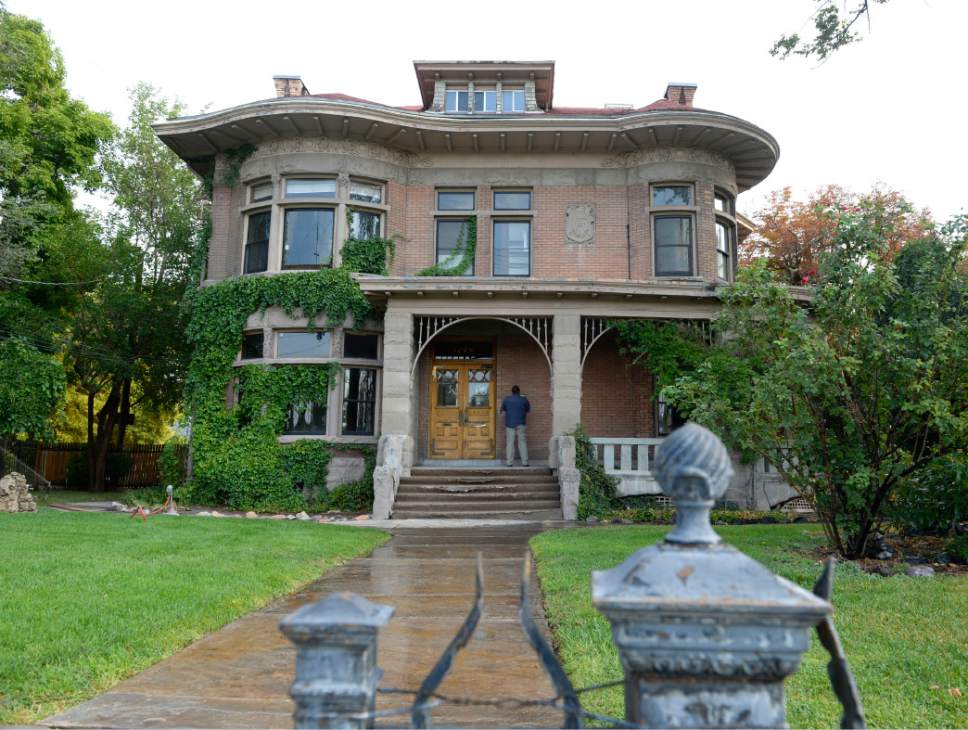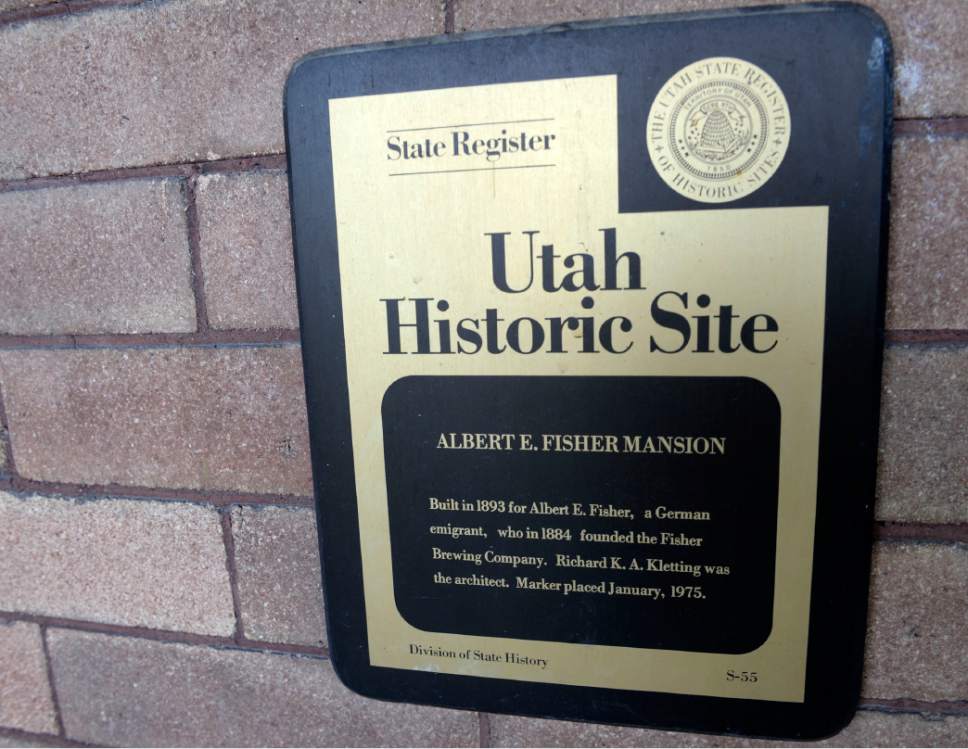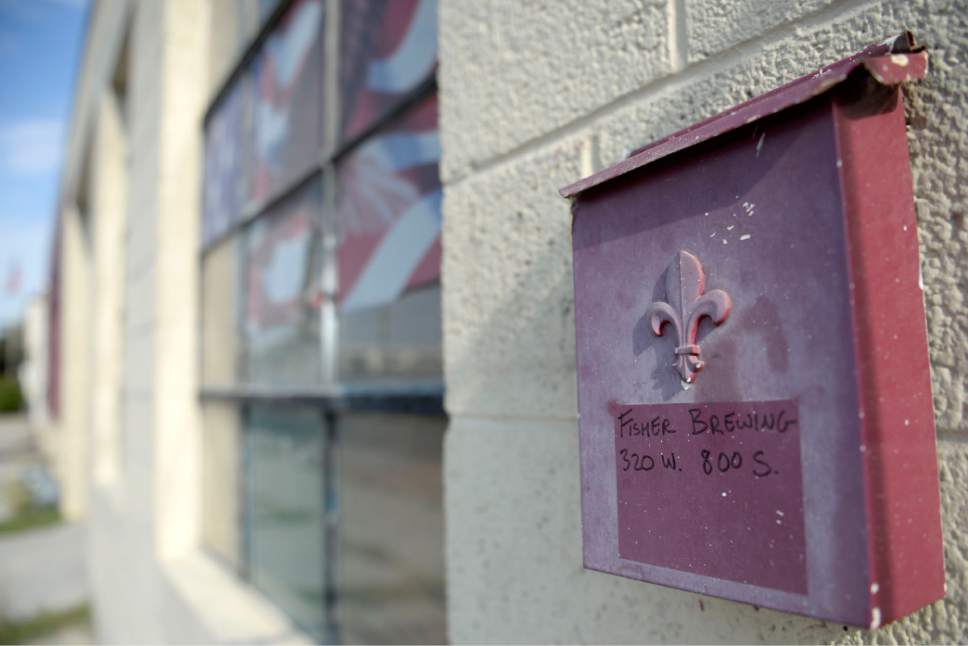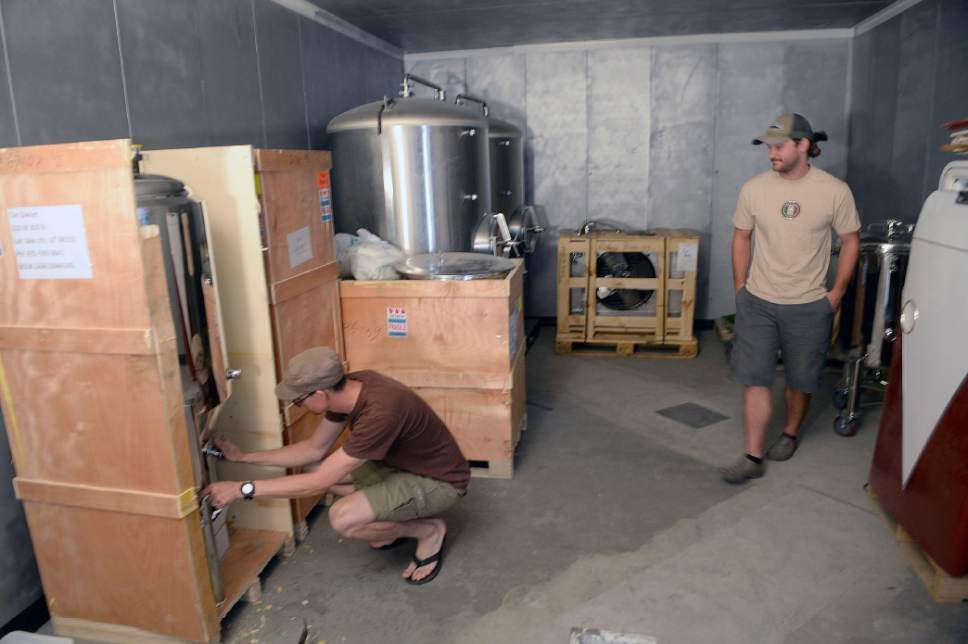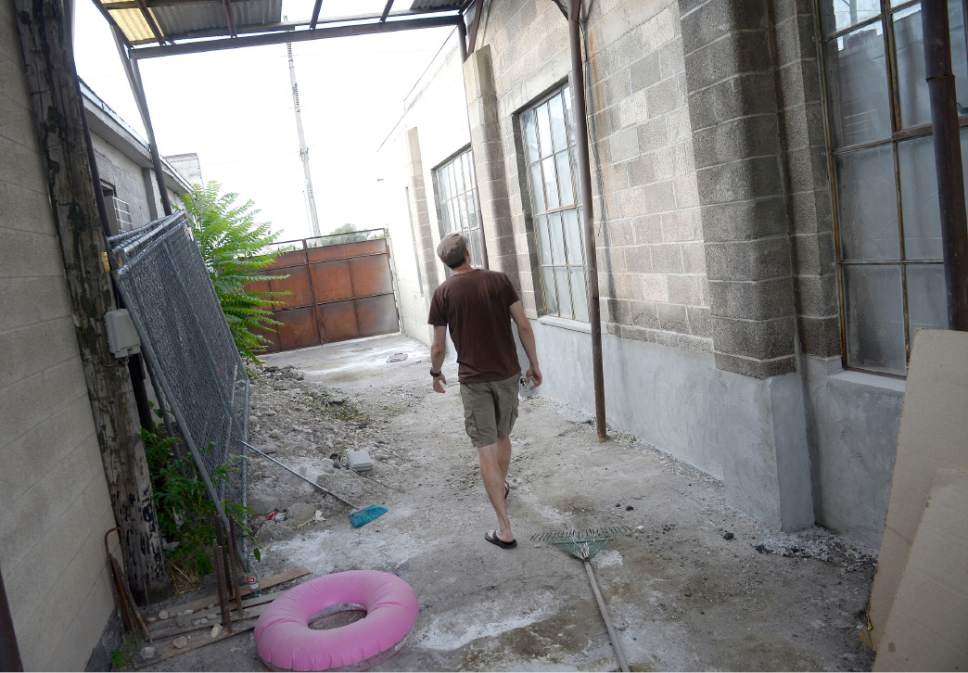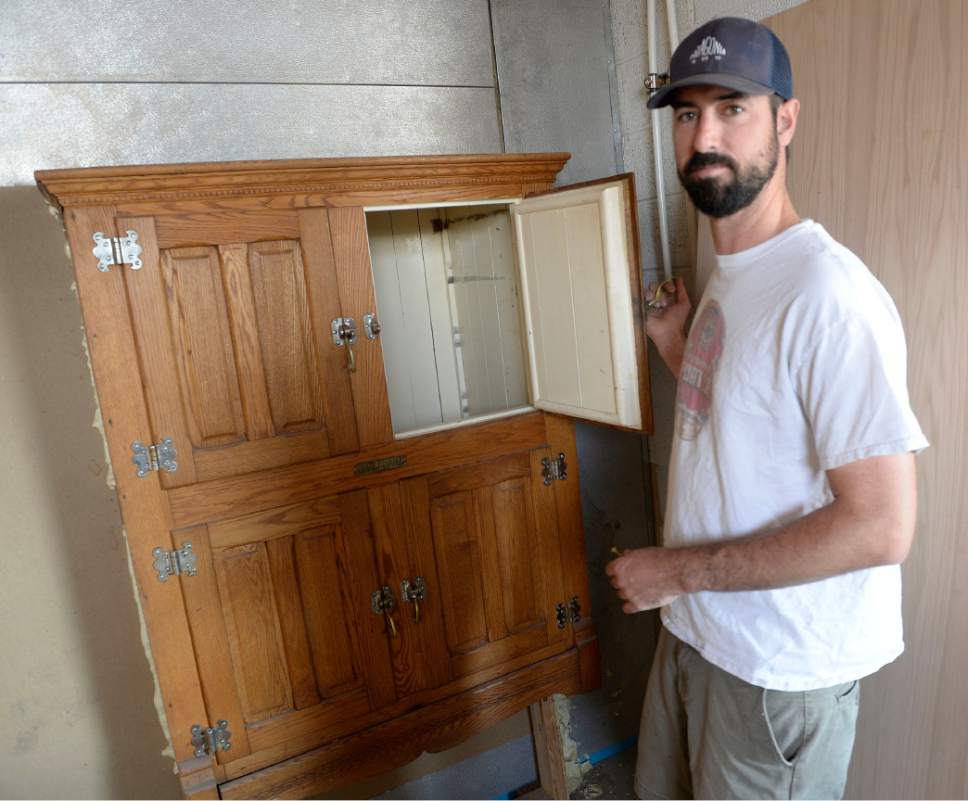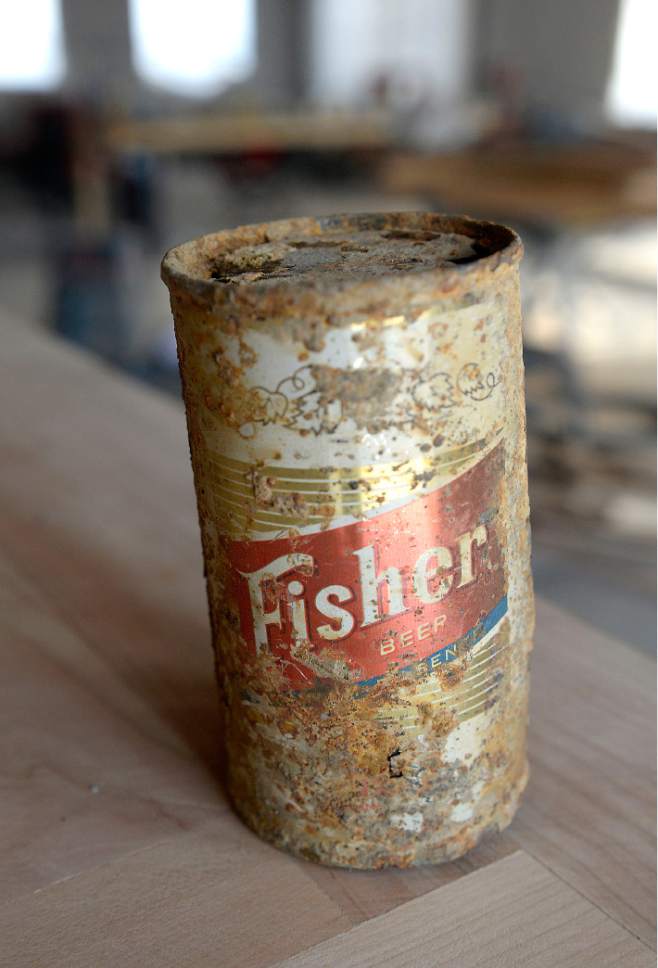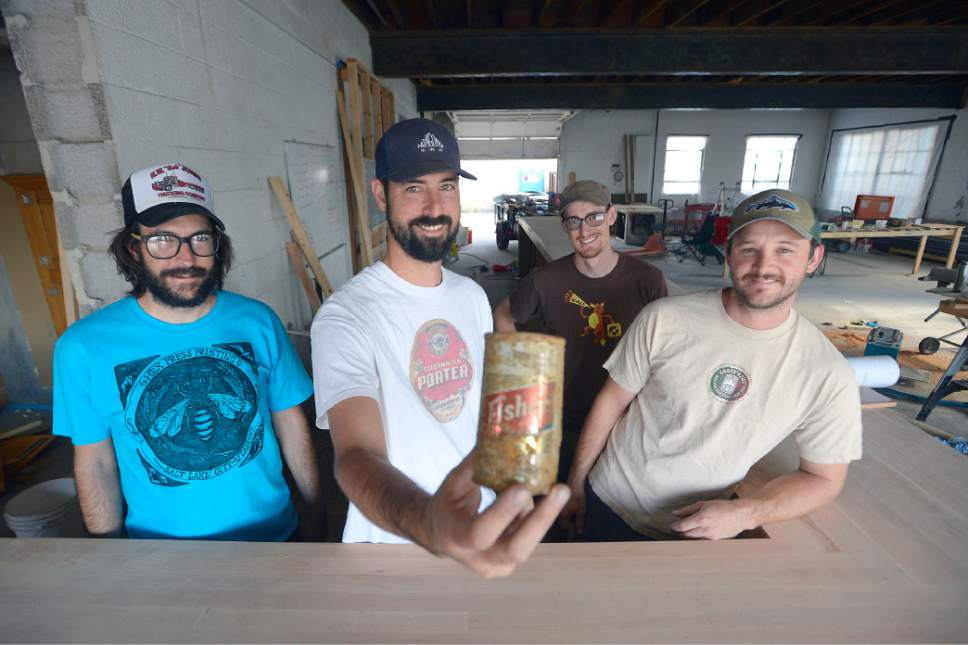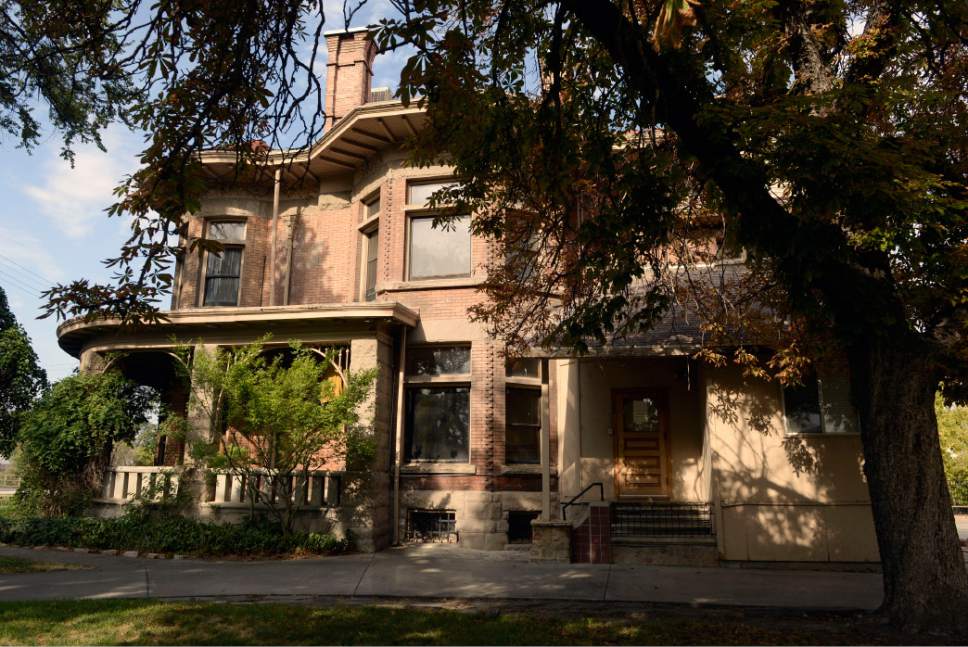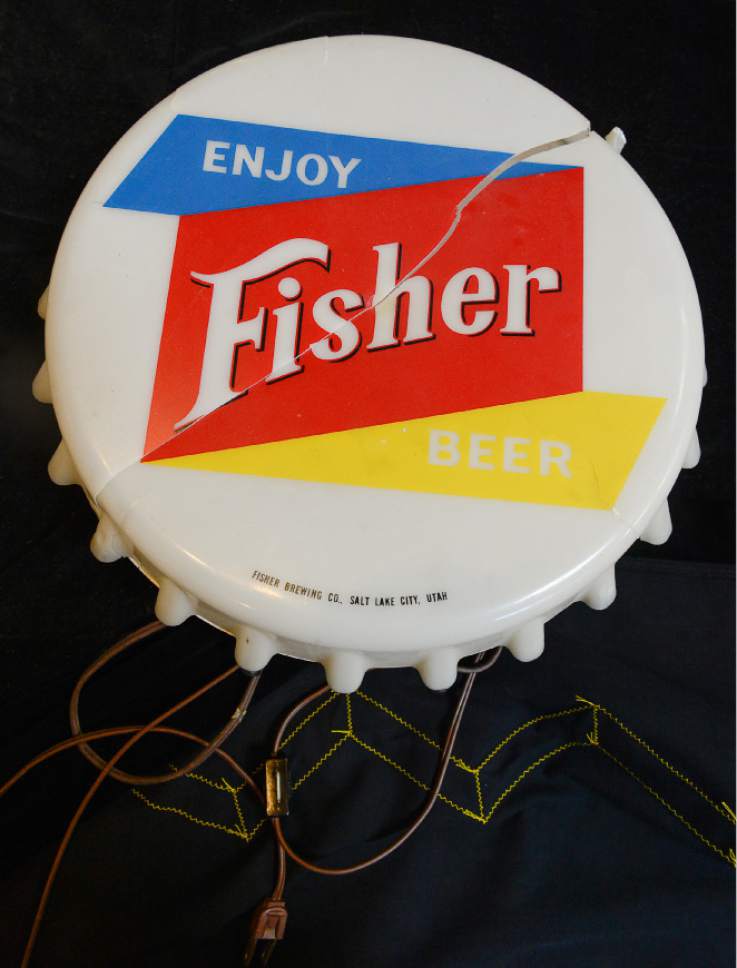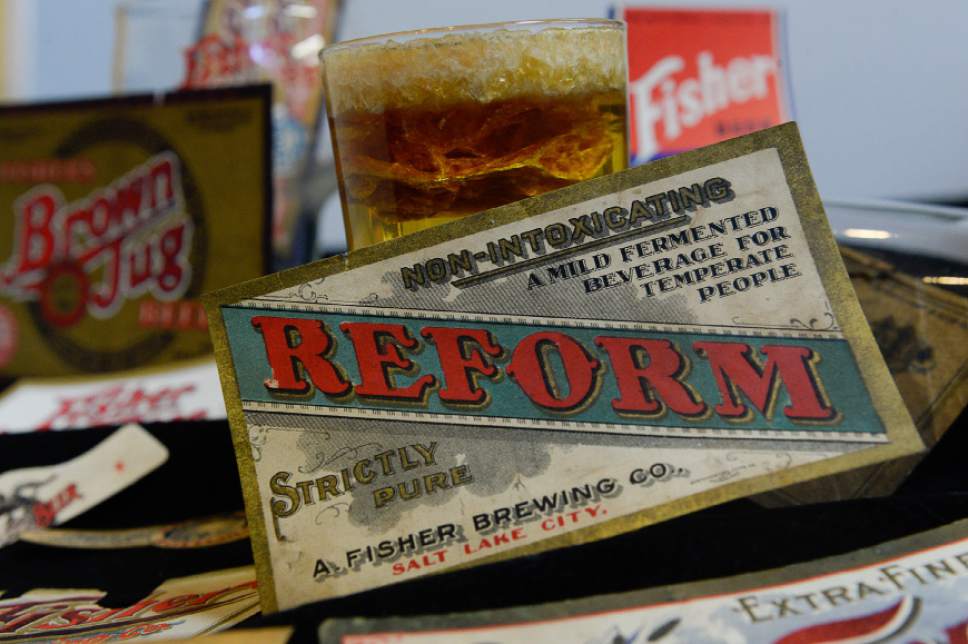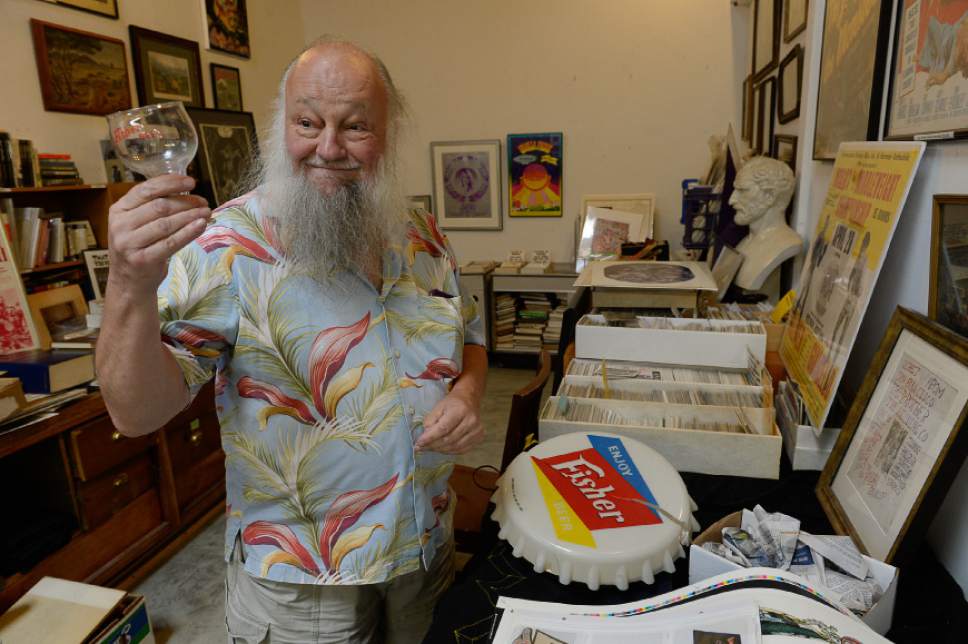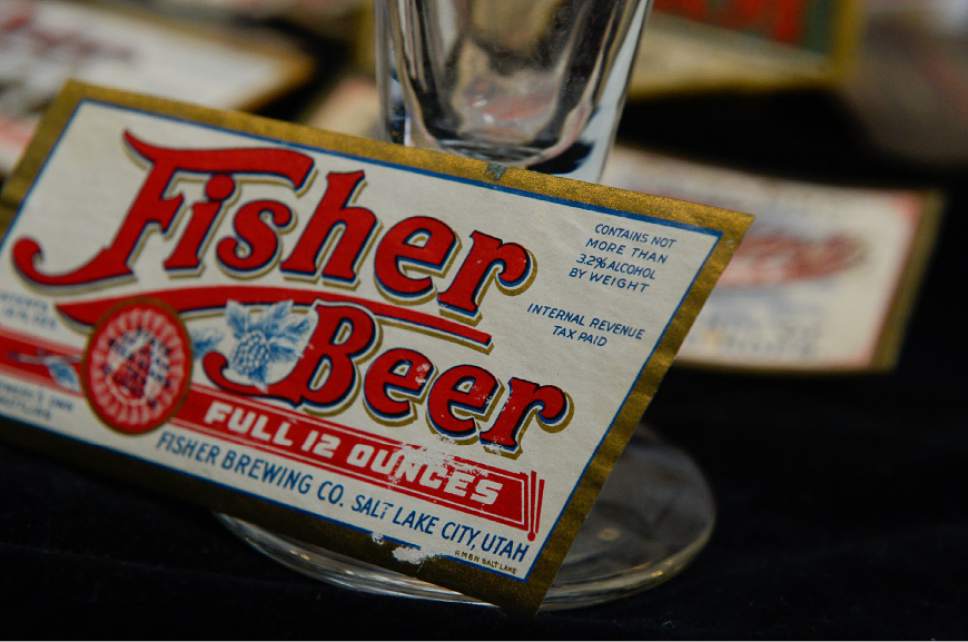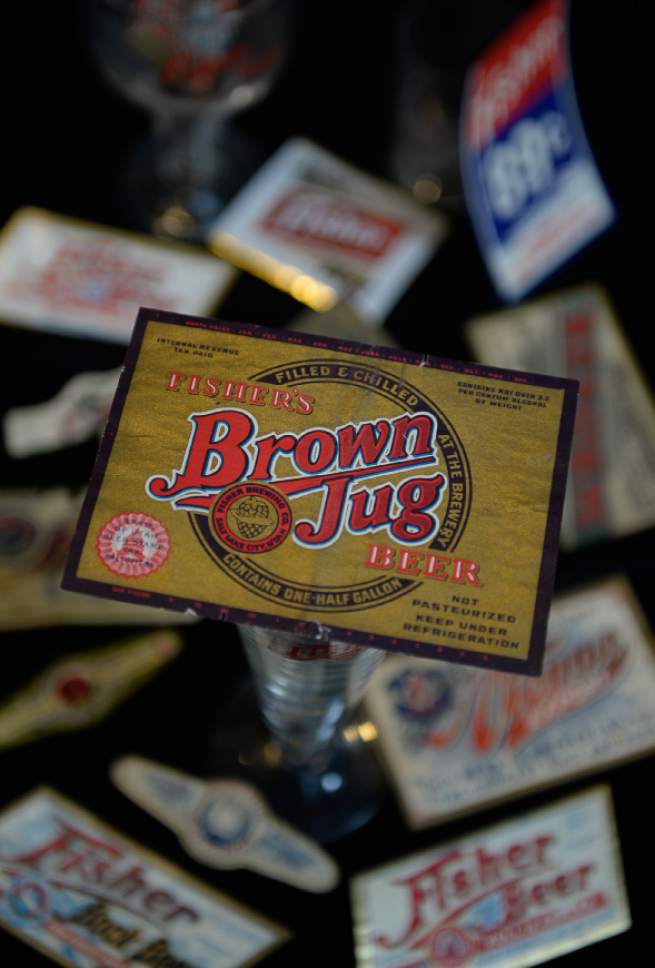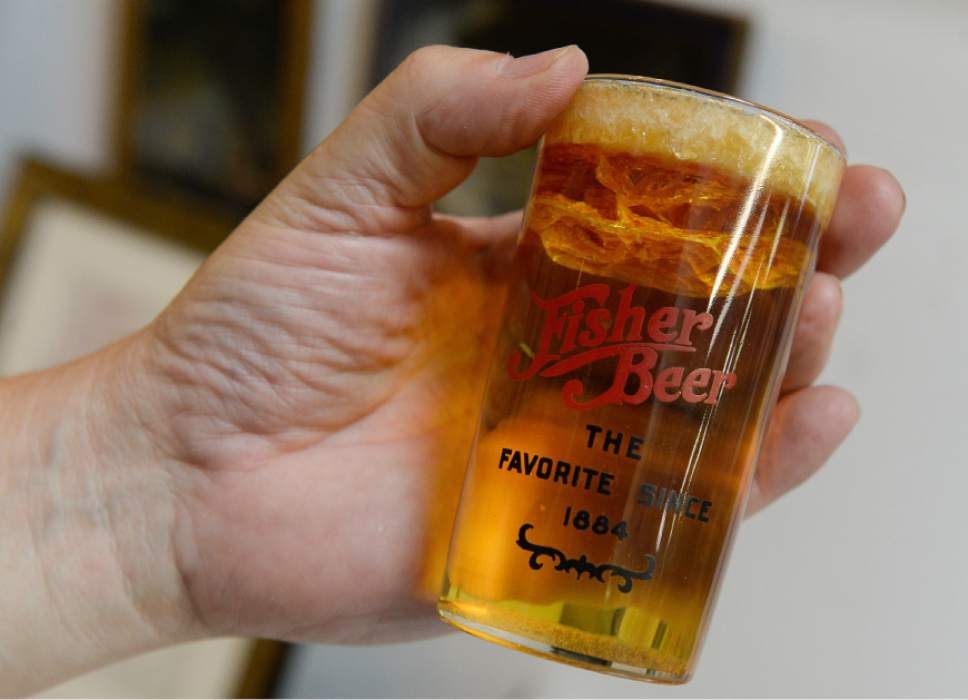This is an archived article that was published on sltrib.com in 2016, and information in the article may be outdated. It is provided only for personal research purposes and may not be reprinted.
Editor's note • In this regular series, The Tribune explores the once-favorite places of Utahns, from restaurants to recreation to retail. If you have a spot you'd like us to explore, email whateverhappenedto@sltrib.com with your ideas.
Fisher Beer is the once and future Salt Lake City brew.
Originally launched in 1884, the A. Fisher Brewing Co. closed during Prohibition, opened again in 1934 and then was sold to California interests in the mid-1950s.
But the great-great-grandson of Albert Fisher and three partners are about to bring back Fisher Beer.
Utah is not known by most Americans as an alcohol-loving place. But before Prohibition, beer was the beverage of all the people — including many Mormons.
"Beer-drinking people are a home-loving, moral people," was an advertising slogan employed by Salt Lake City's Fisher Brewing Co., as cited by mappingslc.org.
Indeed, families drank beer, going back as far as 3500 B.C. in Mesopotamia and Egypt. It was germ-free, loaded with calories and left people feeling good.
Flashing-forward several millennia to this country's pioneer days, brewers were well-respected men, according to Utah Stories.
"They transformed the grains and hops farmers harvested and converted them into a pioneer diet staple," said a 2013 story. "Beer was seen much less as a luxury or vice, as it was a necessity for good health. Kids drank beer; parents enjoyed beer. Beer was a staple for everyone."
In the 1880s, doctors recommended that people drink beer, said Del Vance, author of "Beer in the Beehive."
Albert Fisher opened A. Fisher Brewing Co. on the banks of the Jordan River just north of 200 South in 1884. The river, more pristine than it is today, was the source of water for the brewery.
It eventually became one of the largest breweries in the West. By 1905, Fisher employed about 50 people and produced 75,000 barrels of beer annually. In those days, most beer was sold from the barrel in taverns and saloons, though families would take growlers to the brewery to be filled and taken home.
Vance dedicates an entire chapter of his book to the Fisher Brewing Co. and its founder, Albert Fischer.
Fischer was 17 when he immigrated to the United States from Germany in 1869, soon Americanizing his name by dropping the "c." He arrived in Salt Lake City in 1874, according to "Beer in the Beehive" and soon took a job as a brewer at the Salt Lake City Brewing Co.
Later, one of the owners of that brewery, Aaron Keyser, who was taken by Fisher's grasp of the craft, sold his share of Salt Lake City Brewing and, with Fisher, launched A. Fisher Brewing Co.
—
Success, then Prohibition • By 1893, Fisher's success allowed him to build a mansion near the brewery at 1206 W. 200 South. Today, the brewery is gone, but the house remains.
In 1901, according to Vance, Keyser retired and Fisher bought out his shares. Fisher Beer continued to grow and prosper until 1917, when the Utah Legislature outlawed alcohol. By 1920, national Prohibition forced all other American breweries and distilleries — at least the legal ones — to shut down.
As fate would have it, a month before Prohibition closed the brewery, Fisher died of inflammation of the kidneys.
"Prohibition screwed up the whole country," Vance said in an interview.
With the end of Prohibition came the 21st Amendment (with Utah casting the 36th and deciding vote to ratify) that gave states the right to control alcohol.
"It gave each state the right to be complete idiots," Vance said. "Utah took that and ran with it."
Comparing photos of Salt Lake City's State Street before and after Prohibition is instructive: Before, taverns and saloons lined the thoroughfare. After, such establishments were hard to find.
Nonetheless, in 1934, Albert's son, Frank, reopened Fisher Brewery with Albert's grandson, Bill. It cost what was then a fortune — about $250,000 — to recondition the plant and install new equipment.
But the Utah Legislature had deemed that beer in the Beehive State could be no stronger than 3.2 percent alcohol by weight. That is equivalent to 4 percent alcohol by volume, the measure most states use.
Fisher continued to brew stronger beer for export, according to Vance. Those beers would contain 4.8 percent alcohol by weight, or 6 percent alcohol by volume.
Throughout the '30s, '40s and into the '50s, Fisher Brewing continued its success.
But the Salt Lake City-based company sued San Francisco-based Lucky Lager in 1955, alleging that Lucky kept prices below production cost in Utah in an effort to steal market share, Vance explains in the book. A Salt Lake City jury awarded Fisher $1.1 million in damages, but Lucky appealed and the case dragged out until July 1, 1957, when Frank Fisher announced he had sold the brewing operations to Lucky.
—
Next Generation • But it isn't over for Fisher Beer.
On 800 South, just west of 300 West, Albert Fisher's great-great-grandson Tom Fisher Riemondy and partners Colby Frazier, Steve Brown and Tim Dwyer are busy remodeling an old auto-body shop into a brewery and saloon. The long, wooden bar is taking shape, the brewing tanks have arrived and they can already imagine pouring schooners for thirsty customers.
It will be called the A. Fisher Brewing Co., just like the original, and they hope to kick open the doors and tap the kegs this fall. An exact date has yet to be set.
"We won't start until everything comes together," Riemondy said. "We'll pay homage to the old brand but we are going to expand recipes from this small brewery."
The partners have been discussing the idea in earnest for four years.
"It's been a fairy dream for a long time," Riemondy said. "We've been talking about it for years. It was always going to be Fisher Beer, and we never deviated."
Their location in the Granary District — traditionally a semi-industrial area that is slowly being made over by a youthful population — is pretty cool, Brown said.
"We've always wanted to be in this area," Brown said. "We spent hours driving around, looking for a place."
All four are home-brewing aficionados, and all but Dwyer have worked at microbreweries.
But don't call the new A. Fisher Brewery a brew pub, they warn, because they won't be serving food, although they do plan to have food trucks nearby.
And for starters, A. Fisher Brewing won't be doing any bottling or distribution. But the guys will sell takeaway 32-ounce growlers. And, as Frazier explains it, under Utah law, they can sell beer and ale of a higher alcoholic content if it is sold in takeaway growlers.
Bottoms up.


